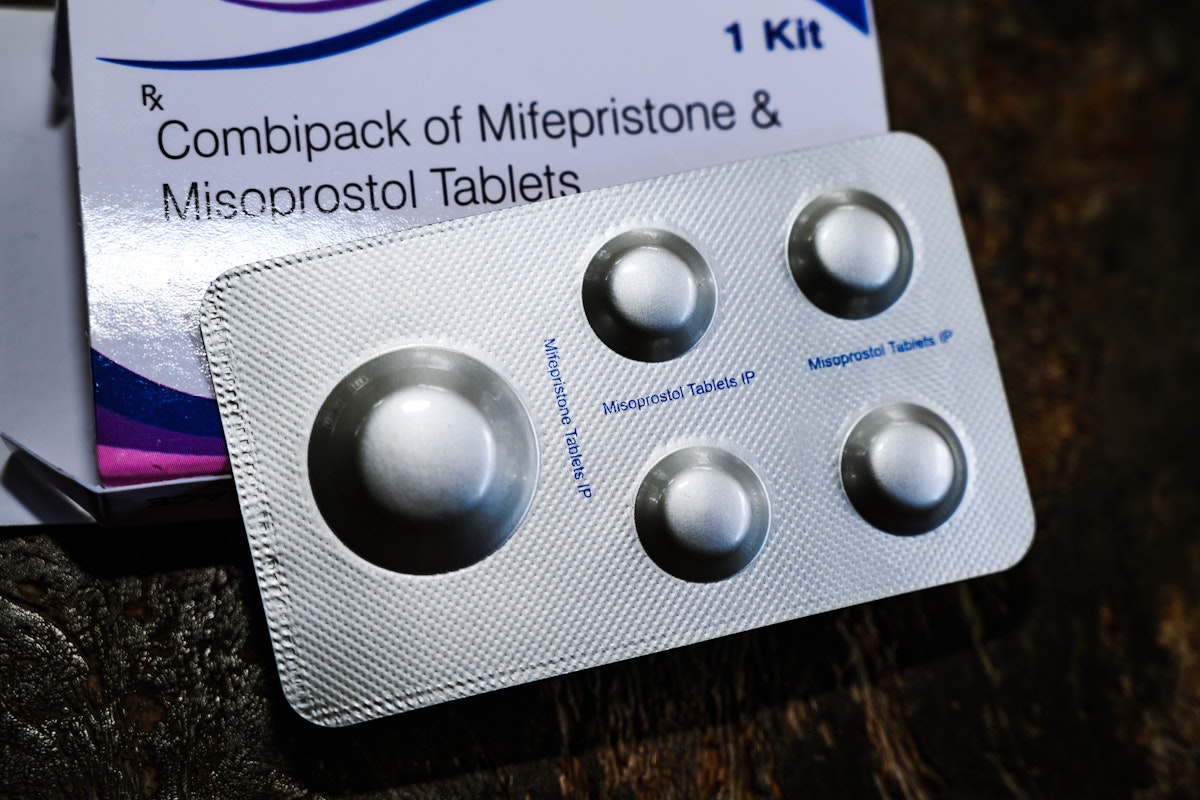It’s About To Become a Whole Lot Easier to Get the Abortion Pill
CVS and Walgreens, the two largest pharmacy chains in the United States, announced Friday that they will start dispensing the abortion pill this month, increasing access to the procedure.Spokespeople for the two companies told The New York Times that the pharmacies will begin dispensing mifepristone, one of the two drugs used to induce an abortion, in a few states in March. The chains will monitor the situation in other states, where laws are less clear or where abortion bans have been temporarily blocked by courts, to see if they can expand where they dispense mifepristone.Walgreens will not dispense mifepristone in “states where the laws are unclear” in order to protect its staff from potential lawsuits, the company spokesman said.CVS will “continually monitor and evaluate changes in state laws and will dispense mifepristone in any state where it is or becomes legally permissible to do so,” the spokeswoman said.Medication abortions make up more than half of all abortions in the U.S. and are considered a crucial tool in maintaining access to the procedure since Roe v. Wade was overturned in 2022. Republicans have sought to make it harder to access mifepristone, including by suing to ban it from the market entirely. Misoprostol, the other medication used to induce an abortion, is already available in pharmacies because it has multiple other uses.CVS and Walgreens announced in January 2023 that they would seek certification from the Food and Drug Administration to dispense mifepristone. But Walgreens changed course a month later, following intense pressure from almost two dozen Republican attorneys general.Walgreens agreed not to dispense mifepristone in the jurisdictions of those 21 attorneys general, even though abortion is legal in nearly half of those states. The move sparked talks of boycotts, including from California Governor Gavin Newsom. Friday’s statement did not address whether Walgreens still intended to abide by that promise.CVS’s and Walgreens’ decision to dispense mifepristone will make it easier for people to get hold of the medication faster. Mifepristone is already available in clinics or via telemedecine, when it is sent through the mail. But now all people don’t need to wait for a mail delivery. All they need is a prescription.The pharmacy chains may be forced to stop selling the drug, though, depending on the outcome of an upcoming Supreme Court case. A coalition of anti-abortion groups, represented by the extremist legal group Alliance Defending Freedom, sued to block access to mifepristone in November 2022. The pill, which has repeatedly been proven safe, has gone through a legal roller-coaster on its way to the Supreme Court as ultraconservative judges used bogus studies to determine that the FDA improperly approved mifepristone decades ago.Mifepristone’s status currently remains unchanged, because the Supreme Court in April halted the lower court rulings that would have yanked the pill from the market. Mifepristone will remain nationally available until the Supreme Court hears the lawsuit later this month and issues a ruling.

CVS and Walgreens, the two largest pharmacy chains in the United States, announced Friday that they will start dispensing the abortion pill this month, increasing access to the procedure.
Spokespeople for the two companies told The New York Times that the pharmacies will begin dispensing mifepristone, one of the two drugs used to induce an abortion, in a few states in March. The chains will monitor the situation in other states, where laws are less clear or where abortion bans have been temporarily blocked by courts, to see if they can expand where they dispense mifepristone.
Walgreens will not dispense mifepristone in “states where the laws are unclear” in order to protect its staff from potential lawsuits, the company spokesman said.
CVS will “continually monitor and evaluate changes in state laws and will dispense mifepristone in any state where it is or becomes legally permissible to do so,” the spokeswoman said.
Medication abortions make up more than half of all abortions in the U.S. and are considered a crucial tool in maintaining access to the procedure since Roe v. Wade was overturned in 2022. Republicans have sought to make it harder to access mifepristone, including by suing to ban it from the market entirely. Misoprostol, the other medication used to induce an abortion, is already available in pharmacies because it has multiple other uses.
CVS and Walgreens announced in January 2023 that they would seek certification from the Food and Drug Administration to dispense mifepristone. But Walgreens changed course a month later, following intense pressure from almost two dozen Republican attorneys general.
Walgreens agreed not to dispense mifepristone in the jurisdictions of those 21 attorneys general, even though abortion is legal in nearly half of those states. The move sparked talks of boycotts, including from California Governor Gavin Newsom. Friday’s statement did not address whether Walgreens still intended to abide by that promise.
CVS’s and Walgreens’ decision to dispense mifepristone will make it easier for people to get hold of the medication faster. Mifepristone is already available in clinics or via telemedecine, when it is sent through the mail. But now all people don’t need to wait for a mail delivery. All they need is a prescription.
The pharmacy chains may be forced to stop selling the drug, though, depending on the outcome of an upcoming Supreme Court case. A coalition of anti-abortion groups, represented by the extremist legal group Alliance Defending Freedom, sued to block access to mifepristone in November 2022. The pill, which has repeatedly been proven safe, has gone through a legal roller-coaster on its way to the Supreme Court as ultraconservative judges used bogus studies to determine that the FDA improperly approved mifepristone decades ago.
Mifepristone’s status currently remains unchanged, because the Supreme Court in April halted the lower court rulings that would have yanked the pill from the market. Mifepristone will remain nationally available until the Supreme Court hears the lawsuit later this month and issues a ruling.



